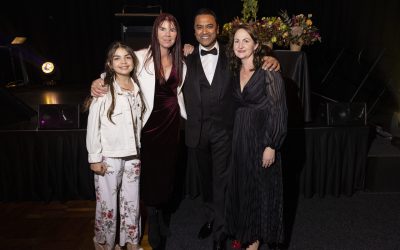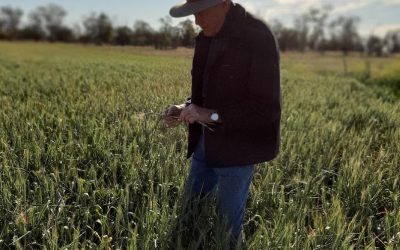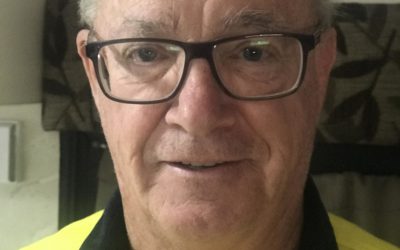Like so many Australians who work in health service delivery, Heart of Australia Driver, Greg Hiscock prefers to work quietly in the background and let the services speak for themselves.
“Everything we do is a team effort. The doctors, the crew on the trucks and the team in the office – we’re all working together. The drivers are a part of that team.”
A third-generation heavy-truck driver, Greg was in the process of looking for his next challenge, and a bit of a career change when he happened to see the Australian Story episode featuring Heart of Australia.
“I guess you could say I was born into truck driving. But after 45 years of driving, and spending the last 20 years in heavy haulage, carting equipment for the mining industry, I was looking for something a bit different to move into.”
“It was just luck I happened to see the Australian Story episode. As soon as it ended, I did a Google search and saw they were looking for drivers.
“I looked through the requirements for the role, and what it would involve, including being comfortable driving oversized vehicles, and being happy talking to people in the bush. Coming from Beaudesert, I love talking with country people. And I had lots of previous experience driving oversized vehicles. It was like this role was made for me.”
Greg applied for the job and was offered a position as one of Heart of Australia’s drivers.
“I’ve been here ever since.”
Greg says being a driver for Heart of Australia is unlike any other heavy truck driving job you’re likely to find.
“It’s not a flat-out drivers job – it’s so much more than that. You’ve got to have the experience to be able to drive the trucks, but there is so much more you get to do.
“To me, the Driver’s role is like being the captain of a cruise ship. I feel responsible for the wellbeing of everyone aboard. I do whatever needs doing to help keep the patients happy and comfortable and to ensure the doctors, the sonographers and the crew get what they need to do the best job possible.
“That means I’m whatever I need to be on any given day – a cook, a chauffeur, a greeter, a cleaner, a repairman or a gopher. And no two days are ever the same.”
“To do this job, you must be ready to try your hand at anything and everything. You’ve also got to be a people person that’s happy to mix and work closely with a team.
Greg says the role is a very social one.
“I work with a very vibrant team of people who I love being with. It’s definitely a team environment, top to bottom, and that starts with Dr Gomes. Everyone’s equal, and we all pull together to do whatever we have to, to deliver the service to the patients.”
“It’s also very social with the patients. Looking after them and talking to them is a big part of the job. It’s one of the best things about it. Country Queensland is right up my alley, out there everyone has a story.”
“Speaking to people from the country, and hearing their stories, you get to really understand how vital our service is to them. They’ll tell you straight – there’s a big difference between driving two-minutes down the road to the truck versus being away from home for two to three days for someone who’s not well.
Greg said another major perk for him was always knowing when he’ll be home.
“In my previous roles, it was never certain. I could be away for 5-7 weeks and not know when I’d be back. The way the rosters are written with Heart of Australia, there is always certainty. I really like knowing I’ll be home next Thursday.”
When asked what the best part of his job was, Greg said it was seeing the impact it has on people’s lives.
“A great example happened when we pulled the truck into Charleville. The doctor treated a woman that lived two minutes up the road from where we had set up our clinic.
“She had very swollen ankles and could hardly walk, however, because we were so close all it took was a little help from her grandson to get her seen. After seeing the cardiologist who treated her condition, she was back home in just a few minutes. If we weren’t there, she would have had to go all the way to Brisbane to get the same treatment.
“I’ve had patients yarn to me about the distance they used to have to travel before we came to town. A lot of them didn’t make those trips for help because of the distance. They just ‘battled through’ it.”
“And we’ve had moments where people have come onto the truck saying they aren’t feeling well, and the doctor has picked up they are having a heart attack right then.
“When things like that happen right in front of you, it hits home. That’s why we do it. If you save one life, that’s a big deal. And we’re saving lots more than one. That alone makes it all worth it, that’s how I know what we do is great”.



